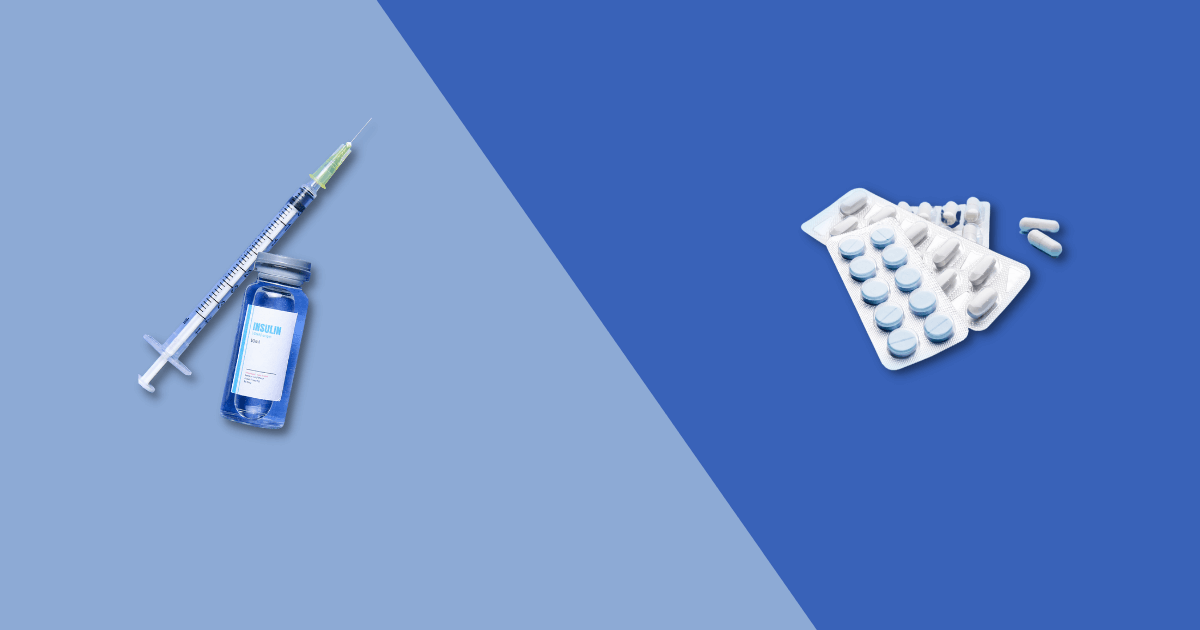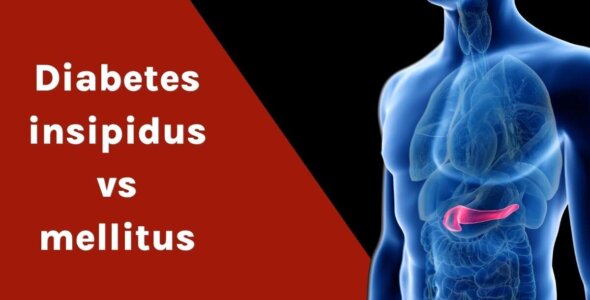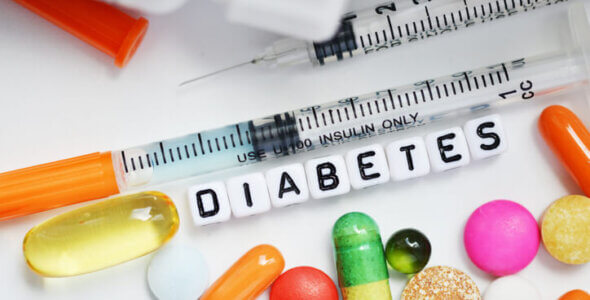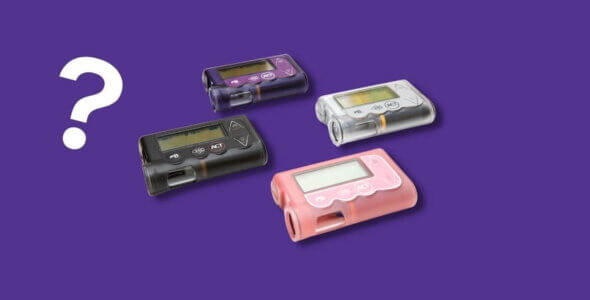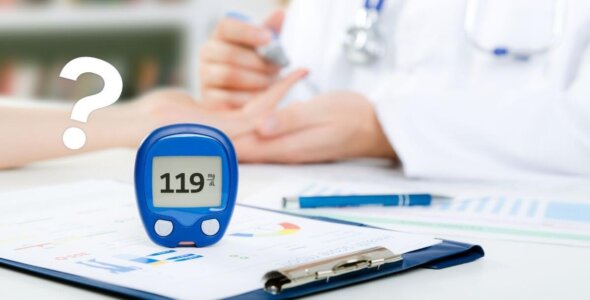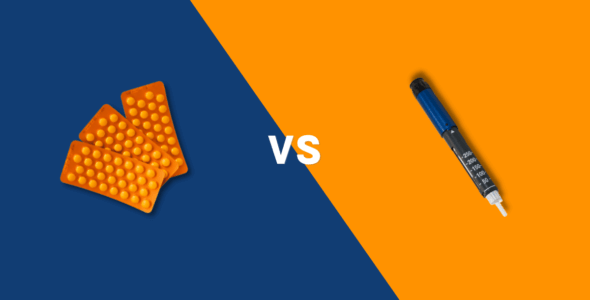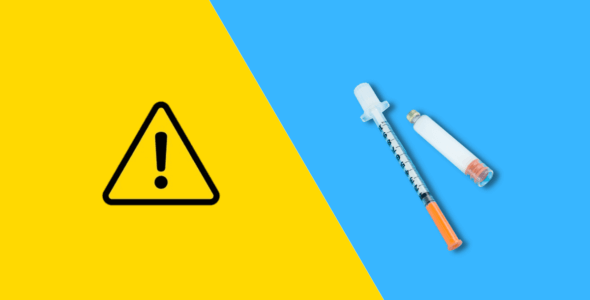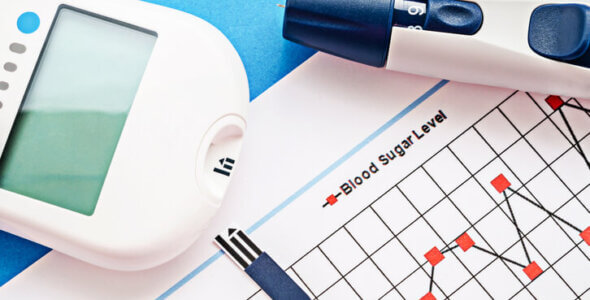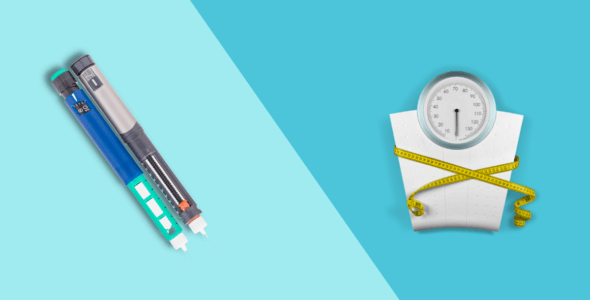Diabetes medications
Table of contents
Having a good grasp of the medication you are taking and how it works gives you more confidence in managing your diabetes. The number of medications available to treat type 2 diabetes in particular, is long and confusing at first. No single diabetes treatment is best for everyone and what works for one person may not work for another. Let us take a look at the various diabetes medications available, simplify how they work, and what common side effects they may have. This knowledge will allow you to discuss treatment options available with your doctor.
Type 1 diabetes medications
When you have type 1 diabetes the only choice of medication is insulin. If you have type 2 diabetes you may use insulin injections if diet and tablets are not working for you.
Insulin
There are different types of insulin but the basic difference is in how quickly they take effect, so they can be divided into:
- Fast-acting – Apidra, Humalog, and Novolog, begin to work about 15 minutes after injection
- Short-acting (regular) – Humulin R and Novolin R work within 30 minutes after injection
- Intermediate-acting – Humulin N and Novolin N generally work two to four hours after injection
- Long-acting – Levemir, Lantus, and Tresiba works for several hours after injection
- Premixed insulins – Novolog 70/30 contains a combination of intermediate-acting insulin with regular insulin
Other type 1 diabetes medications
An amylinomimetic drug called pramlintide can be used as an injection before meals. It works as follows:
- Slows down the time it takes your stomach to empty
- Reduces the release of sugar after meals
- May reduce your appetite and help you lose weight
Symlin Pen is the brand available.
Type 2 diabetes medications
Biguanides
This class of drug is one of the earliest medications for diabetes. Biguanides such as metformin are used regularly as a first-line treatment for type 2 diabetes and are the most common medication used for diabetics. It is unsuitable for anyone with liver, kidney, or heart problems.
How do Biguanides work?
- Slows down the absorption of glucose from your intestines
- Reduces how much sugar your liver makes
- Helps to reduce your insulin resistance
Advantages of Biguanides
- No weight gain side effects
- Very effective
The most common side effects caused by Biguanides include:
- Decrease in vitamin B12 absorption
- Bloating
- Diarrhea
- Nausea
- Weight loss
Common Biguanides brands:
- Glucophage – metformin
- Glumetza – metformin
Meglitinides
How do Metiglinides work?
- Stimulates the release of insulin from your pancreas
Advantages of Metiglinides:
- Works quickly
- Allows you to be flexible with your dose
The most common side effects caused by Meglitinides include:
- Stomach pain
- Indigestion
- Feeling sick
- Diarrhea
- Weight gain
- Low blood sugar (hypoglycemia)
Popular Meglitinide brands include:
- Prandin (repaglinide)
- Prandimet (repaglinide-metformin)
- Starlix (nateglinide)
Sulfonylureas
How do Sulfonylureas work?
- Stimulates the cells of your pancreas to make and release more insulin
Advantages of Sulfonylureas:
- Effective in lowering your blood sugar level
- You can take different formulations
The most common side effects caused by Sulfonylureas:
- Diarrhea
- Feeling sick
- Skin rashes
- Itching
- Weight gain
- Low blood sugar (hypoglycemia)
As with insulin, Sulfonylureas can be classed as short, medium, or long-acting depending on how fast they work.
- Short-acting – tolbutamide (Rastinon)
- Medium-acting – glimepiride (Amaryl)
- Long-acting – chloropropamide (Diabinese)
Glinides
How do Glinides work?
- Stimulates your pancreas to produce more insulin
Advantages of Glinides:
- Fast-acting
Possible side effects:
- Low blood sugar
- Weight gain
- Nausea
- Diarrhea
- Constipation
Common Glinides:
- Prandin – repaglinide
- Starlix -nateglinide
Thiazolidinediones
How do Thiazolidinediones work?
- Causes changes in your muscle and fat cells where insulin resistance occurs
Advantages of Thiazolidinediones:
- Does not cause low blood sugar
- May protect beta cells in your pancreas
The most common side effects caused by Thiazolidinediones include:
- Headaches
- An increase in upper respiratory tract infections (like colds and throat infections)
- Fluid build-up that causes swelling in your hands, feet, and ankles
- Weight gain
Popular Thiazolidinediones include:
Alpha-glucosidase inhibitors
How do Alpha-glucosidase inhibitors work?
- Interrupts the breakdown of carbohydrates into sugar in your gut, so it stops your body from absorbing glucose
Advantages of Alpha-glucosidase inhibitors:
- Especially useful if you have type 2 diabetes where your blood sugar tends to be most out of control after eating
The most common side effects caused by Alpha-glucosidase inhibitors include:
- Bloating
- Gas
- Diarrhea
- Abdominal cramps
- Stomach pain
Common brands include:
- Glyset – miglitol
- Precose – acarbose
Dopamine agonists
How do Dopamine agonists work?
- It’s not known exactly how this drug works to treat type 2 diabetes. It may affect rhythms in your body and prevent insulin resistance
Advantages of Dopamine agonist:
- Does not cause low blood sugar or weight gain
The most common side effects caused by Dopamine agonists include:
- Heartburn
- Feeling sick
- Vomiting
- Loss of appetite
- Drowsiness
- Dizziness
Common brands include:
- Cycloset – bromocriptine
Dipeptidyl peptidase-4 (DPP-4) inhibitors (Gliptins)
How do Dipeptidyl peptidase-4 work?
- Blocks the production of an enzyme called Dipeptidyl peptidase-4 allowing your body to release more insulin
Advantages of Dipeptidyl peptidase-4:
- Does not cause low blood sugar or weight gain
- Possible beneficial effects on cholesterol levels
The most common side effects caused by DPP-4 inhibitors include:
- Upper respiratory infection
- Nausea
- Headaches
- Mild indigestion
Common brands:
Glucagon-like peptide-1 receptor agonists (GLP-1 receptor agonists) / Incretin memetics
How does it work?
- An injected medicine that helps prevent your blood sugar from rising after eating by slowing the rate of digestion and the release of insulin
Advantages:
- May suppress hunger
- Modest weight loss
Side effects:
- Nausea
- Headache
- Diarrhea
- Low blood sugar
Common brands:
- Tanzeum – albiglutide
- Trulicity – dulaglutide
- Byetta -exenatide
- Bydureon Bcise – exenatide extended-release
- Victoza – liraglutide
- Ozempic – semaglutide
Amylin mimetics
How do Amylin mimetics work?
- Helps control your glucose levels
- Slows the movement of food through your stomach
- Used with insulin injections
Advantages of Amylin mimetics:
- May suppress hunger
- It may help with some weight loss
Possible side effects:
- Hypoglycemia (low blood sugar levels)
- Nausea
- Vomiting
Common brands:
- Symlin – pramlintide
Sodium-glucose transporter (SGLT) 2 inhibitors
How do SGLT2 inhibitors work?
- Sodium-glucose transporter SGLT2 inhibitors work by preventing your kidneys from holding on to glucose. Instead, your body gets rid of the glucose through your urine
Advantages of SGLT2 inhibitors:
- These drugs may possibly reduce your risk of cardiovascular disease, heart failure, or chronic kidney disease. The ADA recommends SGLT2 inhibitors as a possible treatment option
The most common side effects caused by SGLT2 inhibitors include:
- Nausea
- Constipation
- Dehydration
- Risk of genital yeast infections
- Risk of urinary tract infections
- Low blood sugar (hypoglycemia)
Popular SGLT2 inhibitor brands include:
Bile acid sequestrants
How do Bile sequestrants work?
- It is thought to lower glucose levels in your bloodstream by attaching itself to bile acids in your intestines
- Researchers are still working to understand how exactly it works
Advantages Bile sequestrants:
- Safer if you have liver problems
Side effects:
- Gas
- Constipation
- Indigestion
Common brands:
- Welchol – colesevelam
Combination Oral Pills
Over time as a type 2 diabetic, your medication will change as your diabetes progresses. You may require multiple medications to keep your blood sugar level stable and within the safe range. Combination oral pills combine the effects of two medications in one drug.
Examples of combination medications for type 2 diabetes:
- Glucovance – metformin and glyburide
- Metaglip – metformin and glipizide
- Avandaryl – rosiglitazone and glimepiride
- ACTOplus Met – pioglitazone and metformin
- Avandamet – rosiglitazone and metformin
- Duetact – pioglitazone and glimepiride
Other diabetes medications
Diabetes is much more than just blood glucose levels e.g type 2 diabetics have a higher risk of heart attacks and strokes, therefore medications to control blood pressure and cholesterol are very useful.
Here are some of the most widely used medications:
- ACE inhibitors – they act on your kidneys to treat high blood pressure
- AIIRA’s – reduces high blood pressure
- Aspirin – reduces the stickiness of your blood, making you less prone to heart attacks and stroke
- Statins – they lower your LDL cholesterol (considered as the bad cholesterol) and raise your HDL (considered as good cholesterol) helping to protect you against heart disease
Diabetes medication FAQs
What is the latest drug for diabetes?
The three latest drugs for diabetes are:
- Rybelsus (semaglutide) is the first oral medication in the glucagon-like peptide-1 receptor agonists class of drugs, approved in 2019 for type 2 diabetics. It helps your pancreas to release the correct amount of insulin when your blood sugar levels are high
- Baqsimi (glucagon) is the first glucagon therapy in a nasal powder that can treat severe hypoglycemia, without an injection
- Victoza (liraglutide) is the first non-insulin drug to treat type 2 diabetes in children since metformin
Diabetes drugs being developed:
- Imeglimin, the first in a new class of anti-diabetic medication that maintains beta-cell function in your pancreas and increases insulin production
- Dasiglucagon HypoPal – a rescue pen for severe hypoglycemia (low blood sugar levels)
What is the safest drug for diabetes?
There is no evidence to suggest that one diabetes drug is safer than another.
What is the cheapest diabetic medicine?
Metformin.
Why are doctors not prescribing metformin anymore?
In June 2020, metformin extended-release tablets were recalled because of higher levels of NDNA (n-nitrosodimethylamine) than acceptable by the FDA. The FDA advises that you should continue to take extended-release metformin until your doctor or pharmacist gives you an alternative.
Should diabetics take aspirin daily?
Aspirin has proven to be an effective treatment for people with diabetes. The drug works on the platelets in your blood, reducing the risk of cardiovascular events. Since people with diabetes are two to four times more likely to develop cardiovascular problems, aspirin is commonly prescribed daily. Since 1997 the American Diabetes Association has recommended aspirin for diabetics. However, aspirin use in diabetics under 30 years of age has not been studied, and taking aspirin by diabetics under 21 years of age is not recommended.
Is there an insulin pill for diabetes?
Currently, the answer is no but there are drugs that are in early development to offer patients an alternative to injecting insulin. Several pharmaceutical companies are racing to be the first to launch insulin pills.
Do I need insulin with type 2 diabetes?
Type 2 diabetes can be treated in the first instance with diet and lifestyle changes, followed by oral medication if needed. However, most type 2 diabetics will eventually need to take insulin by injection. It is important to remember that type 2 diabetes is a progressive disease and medication changes will occur over the years.
Medically reviewed
A medical professional has reviewed this article.


Jamie Winn, PharmD
Jamie Winn, PharmD
Dr. Jamie Winn received his Doctor of Pharmacy in 2002 from the University of South Carolina College of Pharmacy, Columbia, SC. Jamie is a medical reviewer for NiceRx.

